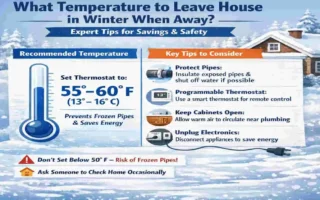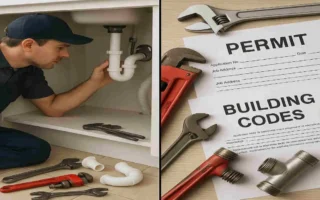Have you ever wondered, “What is the gas we use in our homes?” It’s a question that might seem simple, but understanding the types of gases we use, their typical applications, and the importance of safety can make a big difference in our daily lives.
What Is the Gas We Use in Our Homes?

Definition of Domestic Gas
When we talk about “domestic gas,” we’re referring to the gas supplied to our homes for various purposes. These gases are typically used for heating, cooking, and other household needs. The two main types of domestic gas are natural gas and liquefied petroleum gas (LPG).
Main Types of Gases Supplied for Residential Use
Natural Gas
Natural gas is a fossil fuel that’s primarily composed of methane. It’s extracted from underground reservoirs and then transported to homes through pipelines. Natural gas is the most common type of gas used in homes, especially in urban areas.
Liquefied Petroleum Gas (LPG)
LPG, on the other hand, is a mixture of propane and butane. It’s stored and transported in liquid form, usually in cylinders or tanks. LPG is commonly used in homes that aren’t connected to natural gas pipelines, such as those in rural or remote areas.
Explanation of General Composition and Source of These Gases
Natural gas is primarily composed of methane (CH4), with small amounts of other hydrocarbons such as ethane, propane, and butane. It’s formed from the remains of ancient plants and animals that have been buried and subjected to heat and pressure over millions of years.
LPG, as mentioned earlier, is a mixture of propane (C3H8) and butane (C4H10). These gases are derived from natural gas processing and oil refining.
Brief Comparison: Natural Gas vs. LPG
While both natural gas and LPG serve similar purposes in our homes, there are some key differences between the two:
- Delivery and Storage: Natural gas is delivered through pipelines, while LPG is stored and transported in cylinders or tanks.
- Energy Content: LPG has a higher energy content per unit volume than natural gas.
- Environmental Impact: Natural gas is generally considered to be a cleaner fossil fuel than LPG, with lower carbon emissions.
- Availability: Natural gas is widely available in urban areas, while LPG is more commonly used in rural or off-grid locations.
Types of Gases Used in Homes Explained
Natural Gas
Description and Origin
As we mentioned earlier, natural gas is primarily composed of methane, a colorless and odorless gas. It’s extracted from underground reservoirs, often alongside oil. The natural gas we use in our homes is treated to remove impurities and then odorized with a substance called mercaptan, which gives it a distinct “rotten egg” smell to help detect leaks.
Common Uses in Homes
Natural gas is incredibly versatile and is used for a variety of purposes in our homes:
- Heating: Many homes use natural gas to power their central heating systems, including furnaces and boilers.
- Cooking: Gas stoves and ovens are popular in many kitchens, providing precise temperature control and quick heating.
- Water Heating: Natural gas water heaters are efficient and cost-effective, providing hot water for showers, baths, and other household needs.
Advantages of Natural Gas
There are several reasons why natural gas is the preferred choice for many homeowners:
- Cost-Efficiency: Natural gas is often less expensive than other energy sources, like electricity or oil.
- Availability: Natural gas pipelines are widely available in urban areas, making it easily accessible for most homes.
- Lower Emissions: Compared to other fossil fuels like coal and oil, natural gas produces fewer greenhouse gas emissions when burned.
Liquefied Petroleum Gas (LPG)
Description and Origin
LPG is a mixture of propane and butane, both of which are hydrocarbons derived from natural gas processing and oil refining. LPG is stored and transported in liquid form under pressure, allowing a high energy content in a compact space.
Typical LPG Uses in Homes
While LPG is less common than natural gas in urban areas, it’s widely used in homes that aren’t connected to natural gas pipelines:
- Cooking: LPG-powered stoves and ovens are popular in many rural and off-grid homes.
- Heating: Some homes use LPG to power their heating systems, especially in areas where natural gas isn’t available.
- Water Heating: LPG water heaters are an efficient option for homes without access to natural gas.
Differences from Natural Gas in Storage and Delivery
One of the main differences between LPG and natural gas is how they’re stored and delivered:
- Cylinders vs. Pipelines: LPG is stored in cylinders or tanks, while natural gas is delivered through pipelines.
- Portability: LPG cylinders are portable, making them a convenient option for off-grid homes or outdoor use.
- Safety Considerations: LPG requires special handling and storage due to its pressurized liquid form.
Pros and Cons of LPG for Residential Use
Like any energy source, LPG has its advantages and disadvantages:
Pros:
- Versatility: LPG can be used for cooking, heating, and other household needs.
- Portability: LPG cylinders are easy to transport and can be used in various locations.
- Energy Content: LPG has a high energy content per unit volume, making it efficient for heating and cooking.
Cons:
- Higher Cost: LPG is often more expensive than natural gas, especially in areas where natural gas is widely available.
- Environmental Impact: LPG has a higher carbon footprint than natural gas, contributing more to greenhouse gas emissions.
- Safety Concerns: LPG requires special handling and storage due to its pressurized liquid form, which can pose safety risks if not managed properly.
Other Gases Occasionally Used
While natural gas and LPG are the most common gases used in homes, there are a few other gases that are occasionally used for specific purposes:
Biogas
Biogas is a renewable energy source produced from the decomposition of organic matter, such as food waste, manure, and sewage. It’s primarily composed of methane and carbon dioxide. Biogas can be used for cooking, heating, and, in some cases, generating electricity. As the world moves towards more sustainable energy solutions, biogas is gaining popularity as an eco-friendly alternative to traditional fossil fuels.
Manufactured Town Gas
Historically, some cities used “town gas” or “manufactured gas” for residential and commercial purposes. This gas was produced by heating coal or oil in the absence of air, resulting in a mixture of methane and carbon monoxide. While town gas is no longer widely used in homes, it’s an interesting part of the history of domestic gas use.
Common Household Uses of Gas
Gas is a versatile energy source that’s used for a variety of purposes in our homes. Let’s take a closer look at some of the most common household uses of gas:
Cooking Appliances and Gas Stoves
Gas stoves and ovens are popular in many kitchens, offering precise temperature control and quick heating. Whether you’re simmering a sauce or searing a steak, gas cooking appliances provide the flexibility and responsiveness that many home chefs love. Plus, gas stoves are often more energy-efficient than their electric counterparts, helping you save on your energy bills.
Central Heating Systems
Many homes rely on gas-powered central heating systems to keep them warm and cozy, especially during the colder months. Gas furnaces and boilers work by burning natural gas or LPG to generate heat, which is then distributed throughout the home via ducts or radiators. These systems are efficient, reliable, and often more cost-effective than electric heating options.
Water Heaters and Boilers
Gas water heaters and boilers are another everyday use of gas in our homes. These appliances use gas to heat water for showers, baths, washing dishes, and other household needs. Gas water heaters are typically more energy-efficient than electric models, helping you save on your energy bills while enjoying a steady supply of hot water.
Gas Fireplaces
Gas fireplaces are a popular choice for adding warmth and ambiance to a room. Unlike traditional wood-burning fireplaces, gas fireplaces don’t require a chimney or venting system, making them easier to Install and maintain. Plus, they provide instant heat and can be controlled with the flick of a switch or the press of a remote button.
Backup Power Generators
In the event of a power outage, a gas-powered backup generator can be a lifesaver. These generators use gas to generate electricity, keeping essential appliances and systems running until power is restored. Whether you’re facing a storm or a grid failure, a backup generator can provide peace of mind and keep your home running smoothly.
How Gas Is Delivered and Stored at Home

Now that we’ve explored the various uses of gas in our homes, let’s take a closer look at how gas is delivered and stored:
Overview of Gas Supply for Urban Homes
In urban areas, most homes are connected to a natural gas pipeline network. This network, often operated by a utility company, delivers natural gas directly to your home through underground pipes. The gas enters your home through a meter, which measures your gas consumption for billing purposes.
Description of LPG Delivery and Storage
For homes that aren’t connected to a natural gas pipeline, LPG is often the go-to choice. LPG is delivered to your home in cylinders or tanks, which are filled at a gas supplier and then transported to your property. These cylinders or tanks are then connected to your gas appliances, providing a convenient, portable energy source.
Importance of Regular Maintenance in Gas Supply Infrastructure
Whether you’re using natural gas or LPG, regular maintenance is crucial for ensuring the safe and efficient operation of your gas supply infrastructure. This includes checking for leaks, inspecting and cleaning appliances, and ensuring that all connections and fittings are secure. By staying on top of maintenance, you can help prevent accidents and keep your gas system running smoothly.
Metering and Billing Basics for Gas Consumption
When you use gas in your home, your consumption is measured by a meter, typically located near where the gas enters your property. This meter records the amount of gas you use, and you’re billed accordingly by your gas supplier. Understanding how your gas consumption is measured and billed can help you better manage your energy usage and costs.
Safety Around Home Gas Use
While gas is a convenient and efficient energy source, it’s essential to be aware of the potential safety risks associated with its use. Let’s explore some common dangers, how to detect gas leaks and emergencies, and the best safety practices for homeowners.
Common Dangers of Domestic Gas
Risks of Leaks and Explosions
One of the most significant dangers associated with home gas use is the risk of leaks and explosions. Gas leaks can occur due to damaged or faulty pipes, fittings, or appliances, and if the gas accumulates in an enclosed space, it can ignite and cause an explosion. It’s crucial to be vigilant about detecting and addressing gas leaks to prevent these potentially catastrophic events.
Carbon Monoxide Poisoning
Another danger of home gas use is the risk of carbon monoxide poisoning. When gas is burned incompletely, it can produce carbon monoxide, a colorless, odorless gas that can be deadly if inhaled at high concentrations. Carbon monoxide poisoning can cause symptoms like headaches, dizziness, and nausea, and in severe cases, it can lead to unconsciousness and death.
Fire Hazards
Gas-powered appliances, such as stoves and furnaces, can also pose a fire hazard if not used or maintained correctly. For example, a gas stove left unattended can cause a fire if a burner is accidentally left on or if flammable materials are placed too close to the stove. It’s essential to follow safety guidelines and keep your gas appliances in good working order to minimize the risk of fires.
Detecting Gas Leaks and Emergencies
Signs of a Gas Leak
Several signs may indicate a gas leak in your home:
- Smell: The most common sign of a gas leak is the distinct “rotten egg” smell of mercaptan, the odorant added to natural gas.
- Sound: In some cases, you may hear a hissing or whistling sound near a gas pipe or appliance, indicating a leak.
- Symptoms of Poisoning: If you or someone in your home experiences symptoms like headaches, dizziness, or nausea, it could be a sign of carbon monoxide poisoning from a gas leak.
How to Respond to Gas Leaks Safely
If you suspect a gas leak in your home, it’s crucial to act quickly and safely:
- Leave the area immediately: Don’t try to find the source of the leak or turn off any appliances. Instead, evacuate everyone from the building and leave doors open as you go.
- Call for help: Once you’re at a safe distance, call your gas supplier or emergency services to report the leak. They’ll be able to send a professional to assess and fix the problem.
- Please don’t use any electrical devices: Avoid using phones, lights, or appliances, as they could spark and ignite the gas.
- Wait for professionals: Don’t re-enter the building until a professional confirms it’s safe.
Importance of Gas Detectors and Alarms
One of the best ways to protect your home from gas leaks is to Install gas detectors and alarms. These devices can detect the presence of gas or carbon monoxide and alert you to a potential danger. It’s a good idea to Install gas detectors near gas appliances and in areas where gas leaks are most likely to occur, such as basements and utility rooms.
Best Safety Practices for Homeowners
To keep your home safe from gas-related hazards, follow these best safety practices:
Proper Installation and Regular Inspections
Always have your gas appliances and systems installed by a licensed professional, and schedule regular inspections to ensure everything is working correctly. A professional can check for leaks, test your appliances‘ performance, and make any necessary repairs or adjustments.
Ventilation Requirements
Proper ventilation is crucial when using gas appliances, especially in enclosed spaces like kitchens and bathrooms. Make sure your home has adequate ventilation, such as exhaust fans or open windows, to prevent the buildup of gas and carbon monoxide.
Safe Storage Guidelines for LPG Cylinders
If you use LPG in your home, it’s essential to store the cylinders safely:
- Keep cylinders upright: Always store LPG cylinders upright to prevent leaks and ensure proper operation.
- Store cylinders outside: Whenever possible, store LPG cylinders outside in a well-ventilated area, away from heat sources and flammable materials.
- Check for damage: Regularly inspect your LPG cylinders for signs of damage or wear, and replace them if necessary.
Educating Family Members
Make sure everyone in your household understands the basics of gas safety and knows what to do in case of an emergency. Teach them to recognize the signs of a gas leak, evacuate the home safely, and know who to call for help. By keeping everyone informed and prepared, you can help prevent accidents and keep your family safe.
Environmental Impact of Home Gas Use

As we become more aware of our impact on the environment, it’s essential to consider the environmental implications of using gas in our homes. Let’s explore the environmental impact of natural gas and LPG, as well as some emerging alternatives and ways to reduce our gas consumption.
Natural Gas as a Cleaner Fossil Fuel Option
Compared to other fossil fuels such as coal and oil, natural gas is generally considered a cleaner option. When burned, natural gas produces fewer greenhouse gas emissions than other fuels, including carbon dioxide and methane. This makes it a more environmentally friendly choice for heating and cooking in our homes.
LPG’s Carbon Footprint and Environmental Considerations
While LPG is a convenient and versatile energy source, it does have a higher carbon footprint than natural gas. LPG produces more carbon dioxide emissions when burned, contributing to climate change. However, LPG can still be a more environmentally friendly option than other fossil fuels, especially in areas where natural gas isn’t available.
The Move Toward Renewable Gas Alternatives
As we look to the future, there’s growing interest in renewable gas alternatives to reduce our reliance on fossil fuels. Some of these alternatives include:
- Biogas: As we mentioned earlier, biogas is a renewable energy source produced from the decomposition of organic matter. It can be used for cooking, heating, and even generating electricity, offering a more sustainable alternative to traditional gas.
Ways to Reduce Gas Consumption and Improve Home Energy Efficiency
While gas is a convenient and efficient energy source, there are still ways we can reduce our consumption and improve our home’s energy efficiency:
- Insulate your home: Proper insulation can help keep your home warm in the winter and cool in the summer, reducing the need for gas-powered heating and cooling.
- Use energy-efficient appliances: When it’s time to replace your gas appliances, look for energy-efficient models that use less gas and save you money on your energy bills.
- Practice energy-saving habits: Simple habits like turning off gas appliances when not in use, using lids when cooking, and lowering your thermostat can help reduce your gas consumption.
- Consider alternative energy sources: Depending on your location and needs, you may be able to switch to solar or geothermal power, reducing your reliance on gas.
By being mindful of our gas consumption and taking steps to improve our home’s energy efficiency, we can help reduce our environmental impact and create a more sustainable future.
Frequently Asked Questions (FAQs)
What is the most common gas used in homes today?
The most common gas used in homes today is natural gas. It’s widely available in urban areas and is used for heating, cooking, and other household needs.
How safe is natural gas compared to electric appliances?
Natural gas can be a safe and efficient energy source when used and maintained correctly. However, it does come with some risks, like gas leaks and carbon monoxide poisoning. Electric appliances, on the other hand, don’t pose these same risks but may be less energy-efficient and more expensive to operate.




